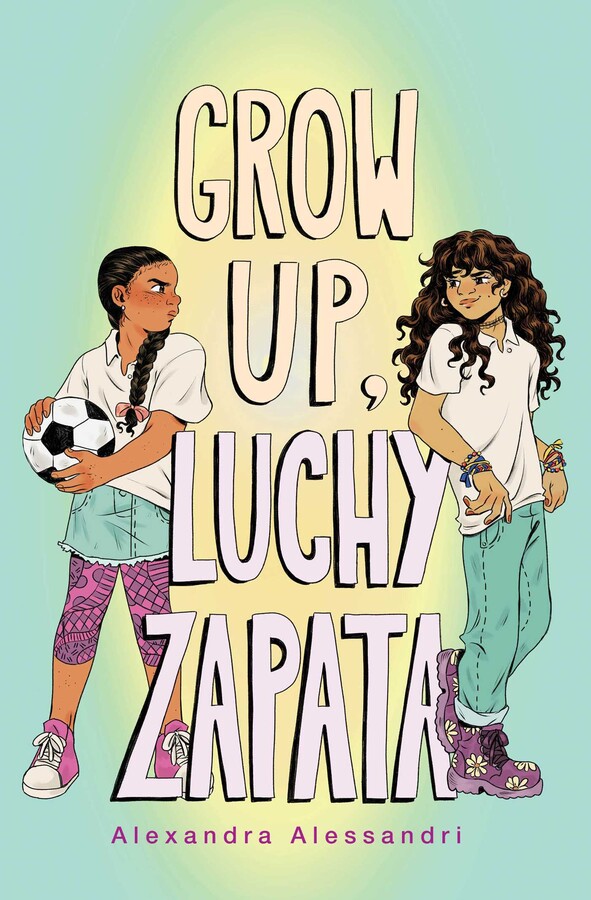Plus, receive recommendations and exclusive offers on all of your favorite books and authors from Simon & Schuster.
Table of Contents
About The Book
Luchy Zapata is starting middle school, and she’s muy excited. She and her two best friends, Cami and Mateo, will finally be at the same school. Luchy and Mateo will be in art class together, and she and Cami can try out for the same soccer team! As long as they’re all together, Luchy can handle anything.
But Cami has been acting weird ever since she got back from visiting family in Colombia. She’s making new, “cool” friends who just seem mean. And suddenly, everything about Luchy and Mateo is too immature for her.
Luchy is determined to help Cami remember how special their friendship is. They’ve been BFFs their whole lives, and that can’t just disappear in a poof of glitter! But…what if Cami doesn’t even want to be friends anymore?
Product Details
- Publisher: Atheneum Books for Young Readers (July 23, 2024)
- Length: 256 pages
- ISBN13: 9781665935968
- Ages: 8 - 12
Browse Related Books
Raves and Reviews
"Alessandri’s latest explores classic middle school themes of trying to fit in versus being yourself, and readers will see themselves and their peers in both Luchy and Cami. The infusion of Colombian cultural elements and Spanish phrases makes this stand out.
A sincere journey of navigating friendship and self-discovery."
– Kirkus Reviews
"Funny and relatable, Grow Up, Luchy Zapata will have you rooting for Luchy even as she makes some questionable decisions--glitter, anyone?--in an effort to win her best friend back. This one is a must for any kid navigating the roller-coaster of a friendship breakup."
– Andrea Beatriz Arango, Newbery Honor-winning author of Iveliz Explains It All and Something Like Home
"A heartfelt exploration of changing friendships and the challenges of growing up. Alessandri presents a pitch-perfect story with a main character young readers will relate to and cheer for as Luchy navigates a new school and evolving relationships."
– Adrianna Cuevas, author of Pura Belpré Honor Book The Total Eclipse of Nestor Lopez and Cuba in My Pocket
"The perfect book for those awkward middle school years. Luchy is the hero every reader in between childhood and adolescence needs--messy, relatable, and remarkable!"
– Amanda Rawson Hill, author of The Hope of Elephants
"Alessandri not only captures Luchy’s painful–and painfully relatable–experiences, but also beautifully seasons the story with Colombian food, culture, and art as Luchy tries to figure out her place in not only middle school but also her community."
– Anika Fajardo, author of What If a Fish and Meet Me Halfway
Resources and Downloads
High Resolution Images
- Book Cover Image (jpg): Grow Up, Luchy Zapata Hardcover 9781665935968
- Author Photo (jpg): Alexandra Alessandri (c) Michelle Nicole Photography(0.1 MB)
Any use of an author photo must include its respective photo credit






